-
 Bitcoin
Bitcoin $113900
-1.39% -
 Ethereum
Ethereum $3517
-4.15% -
 XRP
XRP $3.009
1.59% -
 Tether USDt
Tether USDt $0.9997
-0.04% -
 BNB
BNB $766.8
-1.41% -
 Solana
Solana $164.6
-2.38% -
 USDC
USDC $0.9998
-0.02% -
 TRON
TRON $0.3277
0.65% -
 Dogecoin
Dogecoin $0.2023
-1.67% -
 Cardano
Cardano $0.7246
0.05% -
 Hyperliquid
Hyperliquid $38.27
-4.77% -
 Sui
Sui $3.528
-0.52% -
 Stellar
Stellar $0.3890
-0.73% -
 Chainlink
Chainlink $16.16
-2.69% -
 Bitcoin Cash
Bitcoin Cash $539.9
-4.38% -
 Hedera
Hedera $0.2425
-2.00% -
 Avalanche
Avalanche $21.71
-0.97% -
 Toncoin
Toncoin $3.662
5.73% -
 Ethena USDe
Ethena USDe $1.000
-0.02% -
 UNUS SED LEO
UNUS SED LEO $8.964
0.35% -
 Litecoin
Litecoin $107.7
2.33% -
 Shiba Inu
Shiba Inu $0.00001223
-0.40% -
 Polkadot
Polkadot $3.617
-0.97% -
 Uniswap
Uniswap $9.052
-2.49% -
 Monero
Monero $295.1
-3.79% -
 Dai
Dai $0.9999
0.00% -
 Bitget Token
Bitget Token $4.315
-1.85% -
 Pepe
Pepe $0.00001060
0.11% -
 Cronos
Cronos $0.1342
-2.72% -
 Aave
Aave $256.0
-0.87%
Does HTX contract support limit orders? Which order type is most commonly used?
HTX supports limit orders, allowing traders to set specific prices for buying or selling cryptocurrencies, but market orders are more commonly used for their immediacy.
May 18, 2025 at 11:42 pm
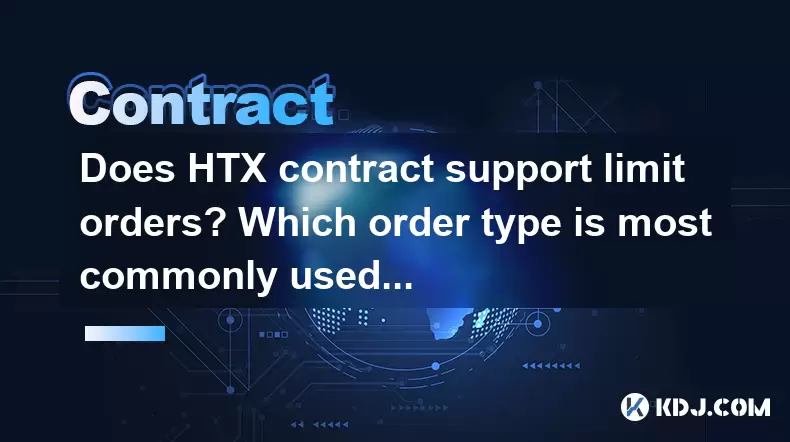
Introduction to HTX and Its Trading Features
HTX, formerly known as Huobi, is one of the leading cryptocurrency exchanges in the world. It offers a variety of trading features designed to meet the needs of both novice and experienced traders. One of the key features that traders often look for is the ability to place different types of orders, including limit orders. In this article, we will explore whether HTX supports limit orders and discuss which order type is most commonly used on the platform.
Understanding Limit Orders on HTX
Limit orders are a type of order where a trader specifies the price at which they want to buy or sell a cryptocurrency. If the market reaches the specified price, the order is executed. HTX does indeed support limit orders, allowing traders to have more control over their trades. To place a limit order on HTX, follow these steps:
- Log in to your HTX account and navigate to the trading page.
- Select the trading pair you wish to trade.
- Choose the "Limit" order type from the order type options.
- Enter the price at which you want to buy or sell the cryptocurrency.
- Specify the amount of cryptocurrency you want to trade.
- Review your order and click "Buy" or "Sell" to place the order.
Other Order Types Supported by HTX
In addition to limit orders, HTX supports several other types of orders to cater to different trading strategies. These include:
- Market Orders: These orders are executed immediately at the best available price in the market. They are useful for traders who want to enter or exit a position quickly.
- Stop-Limit Orders: These are conditional orders that combine the features of stop orders and limit orders. A stop-limit order becomes a limit order once the stop price is reached.
- Post-Only Orders: These orders ensure that the trader's order is added to the order book without being immediately matched with an existing order. This can be useful for traders who want to provide liquidity to the market.
The Most Commonly Used Order Type on HTX
Market orders are the most commonly used order type on HTX. This is because they are simple to execute and are ideal for traders who want to enter or exit positions quickly. Market orders are especially popular among day traders and those who engage in high-frequency trading. While limit orders offer more control over the execution price, the immediacy of market orders makes them the preferred choice for many users.
How to Place a Market Order on HTX
To place a market order on HTX, follow these steps:
- Log in to your HTX account and navigate to the trading page.
- Select the trading pair you wish to trade.
- Choose the "Market" order type from the order type options.
- Enter the amount of cryptocurrency you want to buy or sell.
- Review your order and click "Buy" or "Sell" to place the order.
Comparing Limit Orders and Market Orders
Limit orders and market orders serve different purposes and are suited to different trading strategies. Limit orders are ideal for traders who want to buy or sell at a specific price and are willing to wait for the market to reach that price. They provide more control over the execution price but do not guarantee execution if the market does not reach the specified price.
On the other hand, market orders are executed immediately at the best available price, ensuring that the order is filled but with less control over the execution price. This makes market orders suitable for traders who prioritize speed and liquidity over price precision.
Using Stop-Limit Orders for Risk Management
Stop-limit orders are a powerful tool for risk management on HTX. They allow traders to set a stop price and a limit price, which can help protect against significant losses. To place a stop-limit order on HTX, follow these steps:
- Log in to your HTX account and navigate to the trading page.
- Select the trading pair you wish to trade.
- Choose the "Stop-Limit" order type from the order type options.
- Enter the stop price at which you want the order to be triggered.
- Enter the limit price at which you want the order to be executed.
- Specify the amount of cryptocurrency you want to trade.
- Review your order and click "Buy" or "Sell" to place the order.
Conclusion
HTX supports a variety of order types, including limit orders, market orders, and stop-limit orders. While limit orders offer more control over the execution price, market orders are the most commonly used due to their immediacy and simplicity. Traders can choose the order type that best suits their trading strategy and risk management needs.
Frequently Asked Questions
Q: Can I cancel a limit order on HTX after it has been placed?
A: Yes, you can cancel a limit order on HTX at any time before it is executed. To cancel a limit order, navigate to the "Open Orders" section on the trading page, find the order you wish to cancel, and click the "Cancel" button next to it.
Q: Are there any fees associated with placing limit orders on HTX?
A: HTX charges trading fees based on the user's trading volume and account type. The fees for limit orders are the same as those for market orders. You can find the current fee structure on the HTX website under the "Fees" section.
Q: How long do limit orders remain active on HTX?
A: Limit orders on HTX remain active until they are either executed or canceled by the user. There is no automatic expiration for limit orders, so they can remain in the order book indefinitely if the specified price is not reached.
Q: Can I use limit orders to trade all cryptocurrencies available on HTX?
A: Yes, you can use limit orders to trade any cryptocurrency available on HTX. However, the liquidity and trading volume of different cryptocurrencies may affect the likelihood of your limit order being executed.
Disclaimer:info@kdj.com
The information provided is not trading advice. kdj.com does not assume any responsibility for any investments made based on the information provided in this article. Cryptocurrencies are highly volatile and it is highly recommended that you invest with caution after thorough research!
If you believe that the content used on this website infringes your copyright, please contact us immediately (info@kdj.com) and we will delete it promptly.
- Bitcoin Strategy: Saylor's Not Hoarding, He's Building an Empire
- 2025-08-02 22:30:12
- Bitcoin Bloodbath: Macro Pressures and Liquidations Unleash Crypto Chaos
- 2025-08-02 22:30:12
- Worldcoin, Identity, WLD Price: Decoding the NYC Crypto Buzz
- 2025-08-02 21:10:12
- Shiba Inu: Utility and Community Strength Drive Crypto's Evolution
- 2025-08-02 21:50:12
- Crypto Donations, Trump PAC, and Bitcoin: A New York Minute on Political Coin
- 2025-08-02 20:30:12
- Crypto Market Under Pressure: Bearish Momentum and Rising Volatility Take Hold
- 2025-08-02 20:30:12
Related knowledge
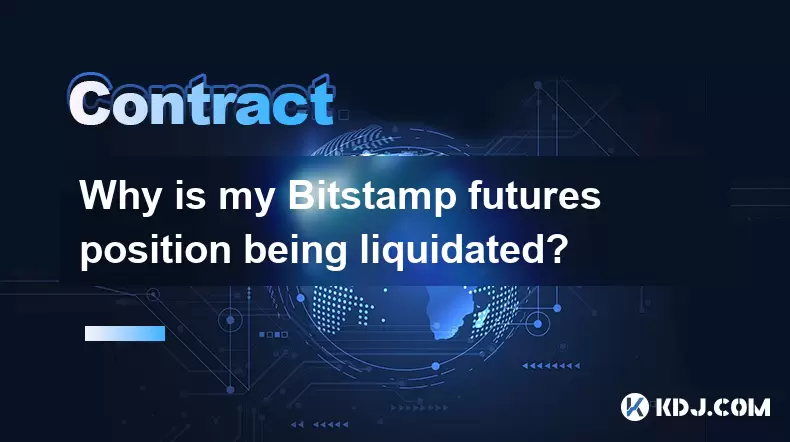
Why is my Bitstamp futures position being liquidated?
Jul 23,2025 at 11:08am
Understanding Futures Liquidation on BitstampFutures trading on Bitstamp involves borrowing funds to open leveraged positions, which amplifies both po...
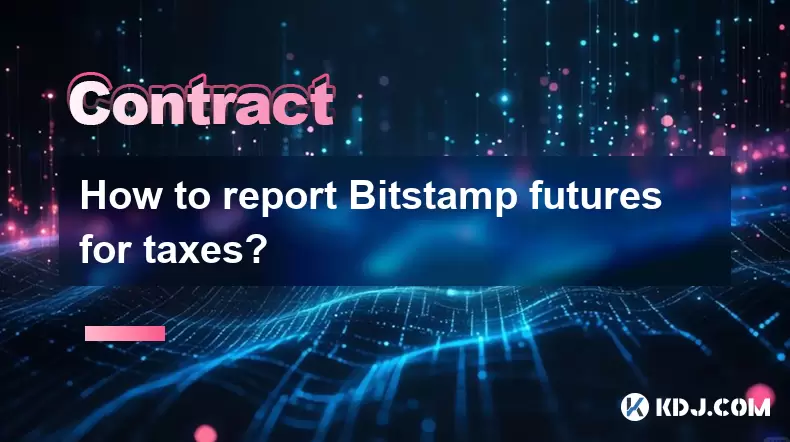
How to report Bitstamp futures for taxes?
Jul 30,2025 at 08:35am
Understanding Bitstamp Futures and Taxable EventsWhen trading Bitstamp futures, it’s essential to recognize that these financial instruments are treat...
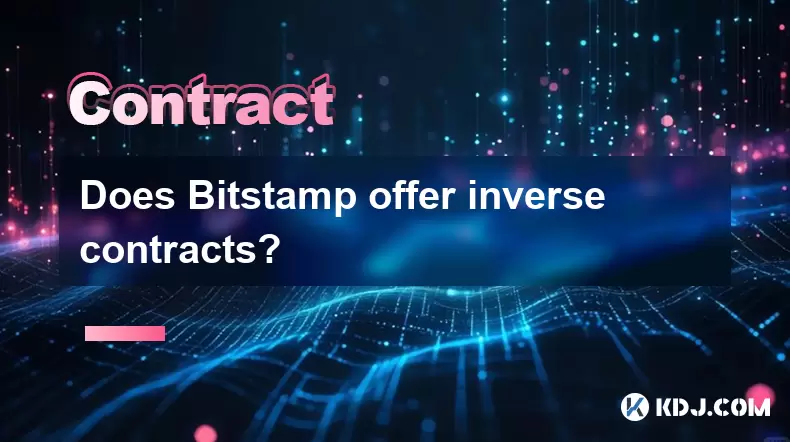
Does Bitstamp offer inverse contracts?
Jul 23,2025 at 01:28pm
Understanding Inverse Contracts in Cryptocurrency TradingIn the realm of cryptocurrency derivatives, inverse contracts are a specific type of futures ...
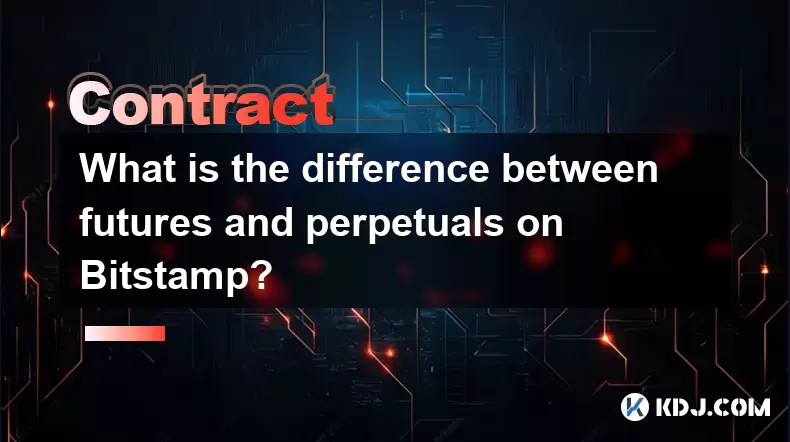
What is the difference between futures and perpetuals on Bitstamp?
Jul 27,2025 at 05:08am
Understanding Futures Contracts on BitstampFutures contracts on Bitstamp are financial derivatives that allow traders to speculate on the future price...
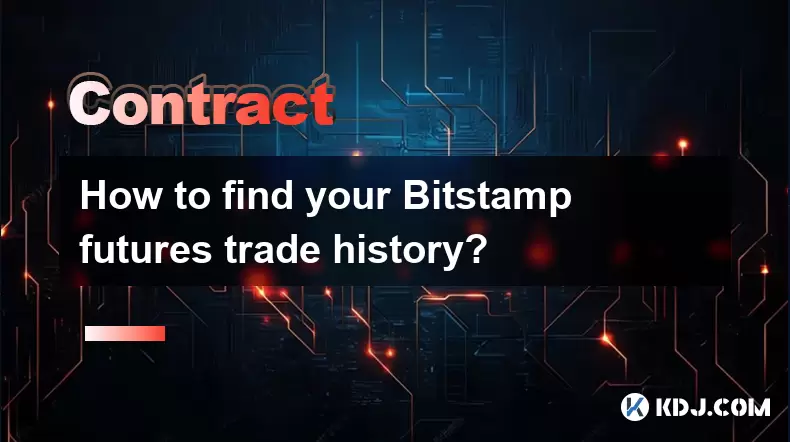
How to find your Bitstamp futures trade history?
Jul 23,2025 at 08:07am
Understanding Bitstamp and Futures Trading AvailabilityAs of the current state of Bitstamp’s service offerings, it is critical to clarify that Bitstam...
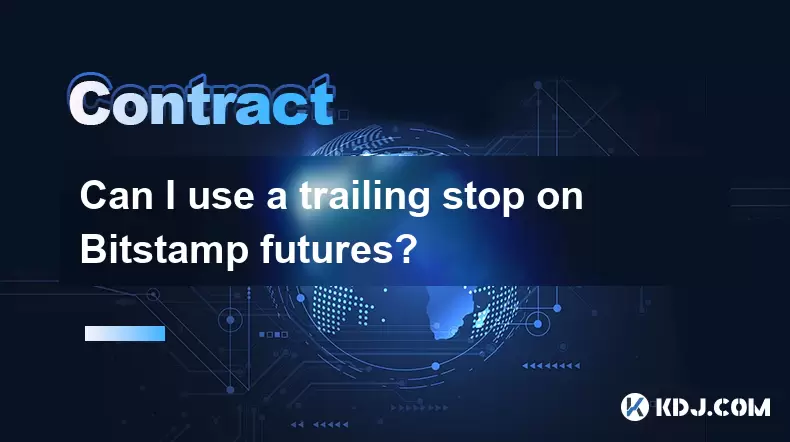
Can I use a trailing stop on Bitstamp futures?
Jul 23,2025 at 01:42pm
Understanding Trailing Stops in Cryptocurrency TradingA trailing stop is a dynamic type of stop-loss order that adjusts automatically as the price of ...

Why is my Bitstamp futures position being liquidated?
Jul 23,2025 at 11:08am
Understanding Futures Liquidation on BitstampFutures trading on Bitstamp involves borrowing funds to open leveraged positions, which amplifies both po...

How to report Bitstamp futures for taxes?
Jul 30,2025 at 08:35am
Understanding Bitstamp Futures and Taxable EventsWhen trading Bitstamp futures, it’s essential to recognize that these financial instruments are treat...

Does Bitstamp offer inverse contracts?
Jul 23,2025 at 01:28pm
Understanding Inverse Contracts in Cryptocurrency TradingIn the realm of cryptocurrency derivatives, inverse contracts are a specific type of futures ...

What is the difference between futures and perpetuals on Bitstamp?
Jul 27,2025 at 05:08am
Understanding Futures Contracts on BitstampFutures contracts on Bitstamp are financial derivatives that allow traders to speculate on the future price...

How to find your Bitstamp futures trade history?
Jul 23,2025 at 08:07am
Understanding Bitstamp and Futures Trading AvailabilityAs of the current state of Bitstamp’s service offerings, it is critical to clarify that Bitstam...

Can I use a trailing stop on Bitstamp futures?
Jul 23,2025 at 01:42pm
Understanding Trailing Stops in Cryptocurrency TradingA trailing stop is a dynamic type of stop-loss order that adjusts automatically as the price of ...
See all articles

























































































